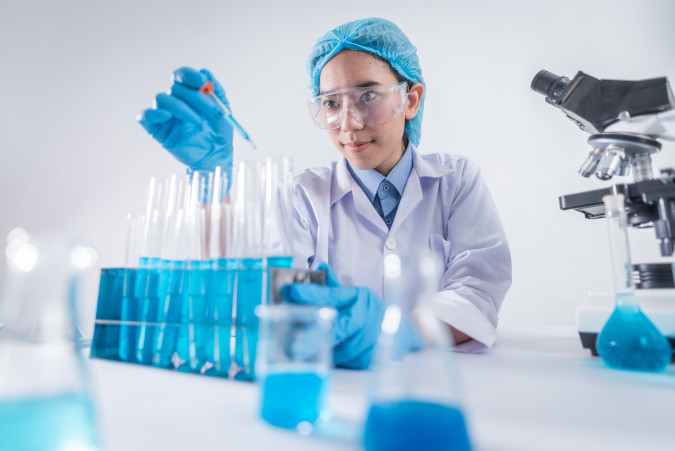
MLTs may work in various settings such as hospital/clinic laboratories, blood banks, research laboratories of hospitals, universities and colleges.
Average Hourly
$33.37
Range Hourly
$18.16 – $42.69
Average Yearly
$65,072
Range Yearly
$35,407 – $83,244
Medical laboratory technologists (3211)
Advanced registered technologist - medical laboratory
Autopsy technologist - medical laboratory
Biochemistry technologist - medical laboratory
Blood bank technologist
Charge technologist - medical laboratory
Clinical immunology technologist
Clinical laboratory technologist
Combined laboratory and x-ray technologist
Cytogenetics technologist - medical laboratory
Cytology technologist
Cytotechnologist - medical laboratory
Electron microscopy technologist - medical laboratory
Hematology technologist - medical laboratory
Histology technologist
Histology technologist - medical laboratory
Histopathology technologist
Histotechnologist - medical laboratory
Immunohematology technologist
Immunohematology technologist - medical laboratory
Immunology technologist - medical laboratory
In-charge technologist - autopsy services
Medical laboratory supervisor
Medical laboratory technical supervisor
Medical laboratory technologist - anatomical pathology
Medical technologist
Medical technologist - medical laboratory
Medical technologists supervisor
Microbiology technologist - medical laboratory
Registered medical technologist
Registered technologist - medical
Serology technologist
Tissue technologist - medical laboratory
A 2-2.5 years post-secondary diploma program on medical laboratory technology available in many colleges across Canada. For examples:
SAIT, NAIT, Michener Institute, Saskatchewan Polytechnic etc.
Average hourly |
Range hourly |
Average yearly |
Range yearly |
$33.37 |
$18.16 - $42.69 |
$65,072 |
$35,407 - $83,244 |
Medium
Employment outlook is mostly good across most provinces. More information is available here.
Depending on the work settings i.e., private laboratory, hospital, community and public health clinic, institutional research labs, biotechnology/ pharmaceutical companies, management positions are usually achievable. Some MLTs go into teaching and training and become instructors in institutions, and others go to research. However, for whom licensing for MLTs is difficult they have some alternative options such as Food Science Technologist, Health Information Management, Bio/chemical technologist in industries and research labs etc. More information is available here.
None. Requires a 2-year diploma program certificate from an accredited institution
Programs available at across countries. List of accredited programs can be found here.
Good communication skills; leadership; time management; medical terminology knowledge; Interest to spend long time in lab settings; ability to work in stressful situations at times; very diligent and careful; reasonable physical stamina; must be detail oriented and able to follow strict procedures; must be able to work both independently and as part of a team; should have good interpersonal skills.
Medical laboratory technologists may need to work long time sitting or standing. They are required to be diligent and often need prolonged visual focus and repetitive motions.
There is risk of being exposed to strong chemicals, biological hazards, infectious diseases and the potential for needle prick injuries. They need to be extremely cautious and careful to follow laboratory safety procedures to be safe from contracting infection, and ensure the safety of patients and co-workers, laboratory technologists practise safe work procedures.
Laboratory technologists may work full-time or part-time hours or on a call-in (casual) basis.
This is regulated in most provinces and require certification from Canadian Society for Medical Laboratory Science (CSMLS) in most of the provinces (AB, SK, NL, MB, ON, NB and NS) with the exception of Quebec wher a certification from Ordre professionnel des technologistes médicaux du Québec is required.. It is unregulated in some province and territories (PEI, NU, NT, YT), however, most employer require CSMLS certification anyway.
Get admitted into diploma program for medical laboratory technology in an accredited college in Canada. The admission into some colleges maybe competitive and require admission tests/interview and/or prerequisite course.
Complete a two to three-year program in medical laboratory technology with practicum
Write and pass the national certification exam to be certified by the Canadian Society for Medical Laboratory Science (CSMLS).
Getting admission into the diploma program may be challenging as they are highly competitive. However, taking some open courses related to laboratory technology may facilitate the admission. For example, some such courses are available in NAIT and they give an edge to those applicants who completed some of those courses already.